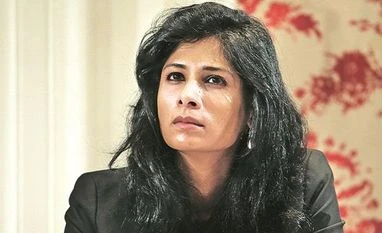The government has provided a lot of schemes for small and medium enterprises, most of which is in the form of liquidity support, Gopinath said. “And you want to revisit it and see how effectively that is working and see whether additional support may need to be provided,” she said, while responding to a question on her recommendations to Finance Minister Nirmala Sitharaman, ahead of her presentation of the annual Union Budget on February 1.
It would be a good time for banks and NBFCs to raise capital given the attractiveness of financing conditions at this point, she said.
“We have to also keep in mind that as these pandemic measures are lifted, there would very likely be an increase in non-performing loans. Even the RBI has projected that,” Gopinath said.
But there might also be a need for the capital support to be provided by the government for public sector enterprises. That has been long on the table which is to improve governance of public sector banks, she said. Observing that there is a need for more public infrastructure spending, she said that the government has expressed an intention to do that.
“There are needs to make more public investment. That would be another area that would require thrust,” she said, adding that health is another sector which needs renewed focus.
“In this pandemic, there has been spending but if you look at the health needs of the country, health capacity has to be increased. We can also see an argument for expanding Ayushman Bharat programme for instance and also increasing the number of medical personnel.”
Gopinath said there has to be progress made on the GST collections. There seems to be a gap with compliance which is an important area to fix. She said that another area which has been long-standing is divestments. That has been in every one of the Budgets, but in terms of the actual implementation it has not happened.
“To have some sort of a very credible divestment path for commercially viable companies is a very important part. Also, the insolvency procedures would require a lot of work.”
On Tuesday, the IMF projected 11.5 per cent growth for India in 2021. While this is attributable to the stronger-than-expected recovery, Gopinath said India still has some distance to go. The IMF chief economist said India moved quickly to put down one of the strictest lockdowns seen anywhere in the world and it stayed that way for a long time. This had an impact on the economy, including a very large contraction in the first quarter of the fiscal year.
“In terms of overall policy support, India has provided a significant amount. It has tended to use more below-the-line measures than above-the-line measures. We still think that there is space for it to do some more,” Gopinath said.
‘Agri needs reforms’
In response to a question on the new farm laws, Gopinath said: “These particular farm laws were in the area of marketing. It was widening the market for farmers. Being able to sell to multiple outlets besides the mandis without having to pay a tax. And this had the potential to raise, in our view, farmers’ incomes”.
“That said, every time a reform is put in place, there are transition costs. One has to make sure and pay close attention that it’s not harming vulnerable farmers to make sure that the social safety net is provided.”
To read the full story, Subscribe Now at just Rs 249 a month
Already a subscriber? Log in
Subscribe To BS Premium
₹249
Renews automatically
₹1699₹1999
Opt for auto renewal and save Rs. 300 Renews automatically
₹1999
What you get on BS Premium?
-
Unlock 30+ premium stories daily hand-picked by our editors, across devices on browser and app.
-
Pick your 5 favourite companies, get a daily email with all news updates on them.
Full access to our intuitive epaper - clip, save, share articles from any device; newspaper archives from 2006.
Preferential invites to Business Standard events.
Curated newsletters on markets, personal finance, policy & politics, start-ups, technology, and more.
Need More Information - write to us at assist@bsmail.in
)